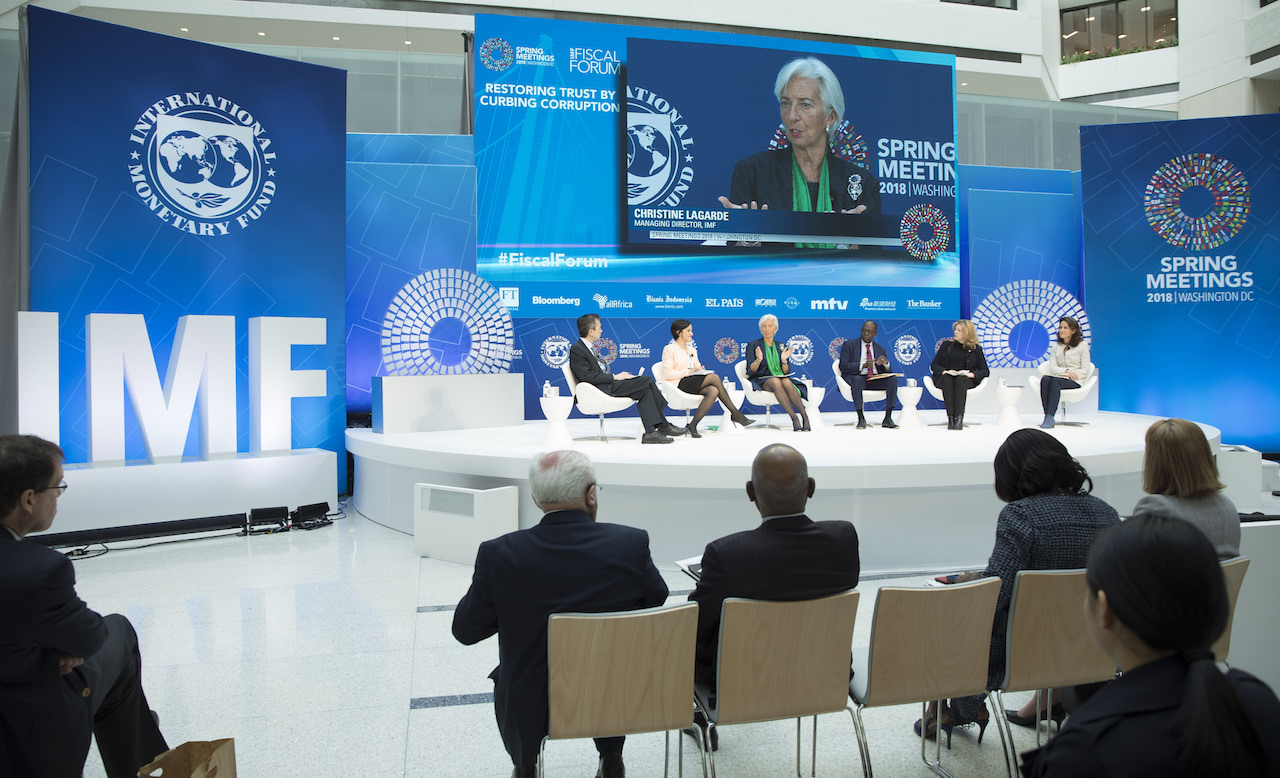
Economic experts have agree with some of the observations by the International Monetary Fund (IMF), leading to its downgrade of earlier forecast of 2.5 percent gross domestic product (GDP) growth to 2.0 percent in 2020, while also faulting some prescriptions that tend to keep Nigeria under perpetual importation.
They criticised that some of the prescriptions are patronising and against Nigeria’s economic interest.IMF, Monday, released details of its Article 4 Consultation with Nigeria, listing huge economic challenges and vulnerabilities ahead, leading to the review of its earlier growth projection under the current year.
Specifically, the Fund’s Mission led by Amine Mati, Senior Resident Representative, and Mission Chief for Nigeria, had said that the country’s growth is still recovering, inflation is increasing, and external vulnerabilities are rising.
Also, fiscal reform momentum and recent tightening of monetary policy are welcome; major policy adjustments remain necessary to contain short-term vulnerabilities and unlock Nigeria’s growth potential; and the pace of economic recovery remains slow, as declining real incomes and weak investment continue to weigh on economic activity.
It added that inflation at 12.33 percent by January end is driven by higher food prices, marking the end of the disinflationary trend seen in 2019, while external vulnerabilities are increasing, reflecting a higher current account deficit, and declining reserves that remain highly vulnerable to capital flow reversals.
To tame the vulnerabilities, the global economic advisory institution suggested the lifting of foreign exchange (forex) restriction on the importation of some 43 items, and the reopening of the land borders, a policy taken to check smuggling and equally encourage local production. IMF also wants Nigeria to refrain from resorting to extra-budgetary spending through the resort to overdraft or intervention by the Central Bank of Nigeria (CBN).
But some of these prescriptions, especially the lifting of forex ban and reopening of the land borders are largely at variance with Nigeria’s monetary and fiscal policies. A former Deputy Governor of the Central Bank of Nigeria (CBN), Dr. Obadiah Mailafia, while agreeing with the IMF on the food shortages due to border closure,, thereby spiking inflation, however, disagreed with the Fund on the border issue, which he said is a matter of national security.
Mailfia said: “The talk (by government) of increases in food production is more a propaganda than reality. There is no doubt that the intervention funds by CBN have had some positive impacts in the rice sector, and local production has risen significantly. But we are not yet anywhere near self-sufficiency in local rice production as is being claimed.
“The reality is also the fact that nobody has actually done a cost-benefit analysis of the CBN intervention funds. There is anecdotal evidence that the costs far outweigh the benefits and impacts. Whatever improvements that have been registered have been undermined by the herdsmen militias and rural bandits that are succeeding in destroying the agrarian bread basket of the country, which is the Middle Belt.
“The IMF has no business interfering in matters of national security. The border closure decision has more to do with national security than international economics. So far, the border closure has significantly reduced the genocidal violence going on in the country. All sorts of reptilian powers have been sponsoring and arming bandits, who come across our borders, bearing heavy weapons. They have killed and maimed indiscriminately men, women, children and the elderly. Entire communities have been devastated. There are world powers sponsoring this devilish wickedness, all with the strategic intent of destroying our country.
“But make no mistake about it; the decision to close our borders has angered several European powers who have been using our neighbours to dump all their goods on our shores. At a dinner before Christmas with one of the EU countries, when the topic of the border closure came up, a visi6ting official blamed Dangote and other industrialists for our alleged anti-free market protectionism.
“We have a pretty hopeless and incompetent administration in place right now, but they have done one or two things right. One of these is the closure of the borders. I strongly urge the government not to back down. We should continue on this path until we have cast-iron guarantees that our neighbours will not be used to engage in trade dumping and to smuggle in weapons that will destroy us.”
Similarly, the Chief Executive Officer, Global Analytics Consulting, Abuja, Tope Fasua, agreed with the IMF on the CBN use of overdraft, but differed on the trade terms as regards the banned items
“I agree with the IMF on the overuse of CBN overdraft but I disagree on easing restriction on foreign exchange for select goods on which Nigeria hopes to promote local production. Every country should have a few prerogatives.
“The idea of open market economics by every means is outdated. Pragmatism is the only thing that works these days and that is what every upwardly mobile country adopts. Our headline inflation is driven by food inflation, and this calls to question our agric policy, which has been driven by import substitution so far, and not the idea of assuring stable food prices especially for the vulnerable.
“Nigeria’s agriculture is still mainly rain-fed, and recent experiments throwing money problem via CBN interventions may not have been as successful as advertised. High inflation is fundamentally a disincentive to investment whether in financial instruments or even the real sector, as inflation erodes returns on investments.”
On his part, a former Director-General, Nigerian Institute of Economic and Social Research (NISER), Prof. Olu Ajakaiye, commenting on the rising inflation, said: “In my view food price inflation is due more to supply side shocks occasioned by insecurity and poor rural transport network. Persistence of these challenges may cause food inflation to escalate.
